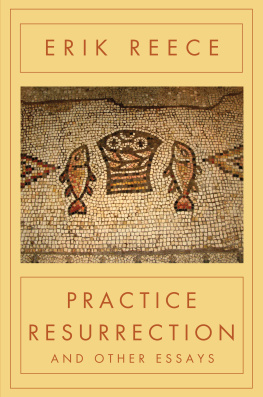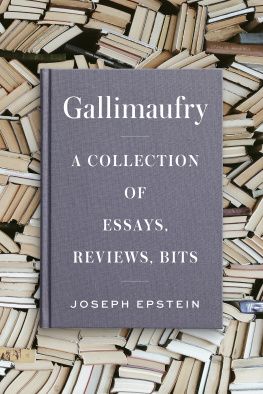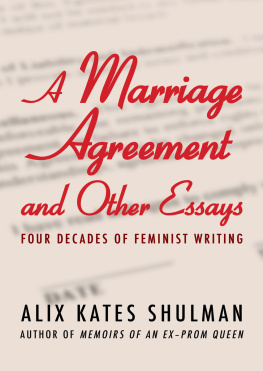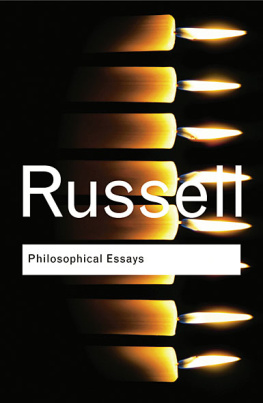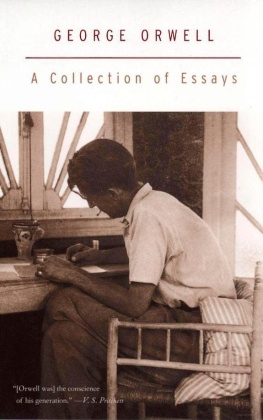Reece - Practice Resurrection And Other Essays
Here you can read online Reece - Practice Resurrection And Other Essays full text of the book (entire story) in english for free. Download pdf and epub, get meaning, cover and reviews about this ebook. City: Berkeley, year: 2017, publisher: Counterpoint, genre: Detective and thriller. Description of the work, (preface) as well as reviews are available. Best literature library LitArk.com created for fans of good reading and offers a wide selection of genres:
Romance novel
Science fiction
Adventure
Detective
Science
History
Home and family
Prose
Art
Politics
Computer
Non-fiction
Religion
Business
Children
Humor
Choose a favorite category and find really read worthwhile books. Enjoy immersion in the world of imagination, feel the emotions of the characters or learn something new for yourself, make an fascinating discovery.
- Book:Practice Resurrection And Other Essays
- Author:
- Publisher:Counterpoint
- Genre:
- Year:2017
- City:Berkeley
- Rating:5 / 5
- Favourites:Add to favourites
- Your mark:
- 100
- 1
- 2
- 3
- 4
- 5
Practice Resurrection And Other Essays: summary, description and annotation
We offer to read an annotation, description, summary or preface (depends on what the author of the book "Practice Resurrection And Other Essays" wrote himself). If you haven't found the necessary information about the book — write in the comments, we will try to find it.
Practice Resurrection And Other Essays — read online for free the complete book (whole text) full work
Below is the text of the book, divided by pages. System saving the place of the last page read, allows you to conveniently read the book "Practice Resurrection And Other Essays" online for free, without having to search again every time where you left off. Put a bookmark, and you can go to the page where you finished reading at any time.
Font size:
Interval:
Bookmark:


Copyright 2017 Erik Reece
All rights reserved under International and Pan-American Copyright Conventions. No part of this book may be used or reproduced in any manner whatsoever without written permission from the publisher, except in the case of brief quotations embodied in critical articles and reviews.
Library of Congress Cataloging-in-Publication Data Is Available.
Cover design by Nick Gomez-Hall
eISBN: 978-1-6190-2896-8
COUNTERPOINT
2560 Ninth Street, Suite 318
Berkeley, CA 94710
www.counterpointpress.com
Printed in the United States of America
Distributed by Publishers Group West
10 9 8 7 6 5 4 3 2 1
For Wendell,
in memory of Guy
help me
I am of the people the grass
blades touch
George Oppen
SCENE: The heads of Orpheus and John the Baptist are floating along a Mediterranean river.
Conversation ensues.
Q: What is the world?
A: A self-creating God.
Q: What is God?
A: Being.
Q: So you believe in God?
A: I believe in the world as it exists.
Q: Thats what I meant.
A: Wave!
W ith my solo canoe loaded down by camping gear and a cooler full of beer, wine, and cold cuts, I paddle out onto Lake Umbagog, a beautiful eight-thousand-acre body of water that stretches across the MaineNew Hampshire border. Spear-shaped firs, spruces, and white cedars frame the lake in deep green hues. Otter, moose, and mink are said to prowl the marshy banks. I already see a solitary loon floating in the distance. The day is warm and bright, and a cool June breeze is combing narrow furrows onto the surface of the water. I balance the wind on the stem of my canoe with a paddle stroke my grandfather taught me thirty years ago. Back then we explored the coves and inlets near the Chesapeake Bay, where my grandparents lived in a small stucco parsonage. Some years later, my grandfather talked a fishing buddy of his into selling me this canoe for $100. My grandfather was a forceful country preacher, and people had a hard time telling him no. From the other room, I could overhear him saying into the phone, Well Bill, hes just a poor graduate student.
By turning the paddle away from the stern at the end of the stroke, I carve the letter J into the water, a kind of one-letter poem that dissolves into a small eddy and must be reinscribed over and over. I remember, when I was a kid, watching from the bow seat of my grandfathers canoe as he performed the J stroke with a deft deliberateness. He handled his paddle with such a fluid ease, the water never even splashed around the blade as he turned it into the curve of the J . I try to emulate that artistry now. But once I reach the middle of Lake Umbagog, I find myself struggling against a strong headwind. After about two hours of paddling south, then east toward what I hope is the Maine border, I see the number 35 blazed in white on a boulder. I realize with a sudden thrill that this is my island. At least for the next several days, it is mine alone.
The bow of my canoe eases to a halt between two exposed roots of a tall cedar that stands on the sandy shore. The island is about the size of a football field. It is all wooded except for a small clearing, where a picnic table sits next to a stone fire pit. I haul my gear out and pitch my tent on a bed of pine needles. I set my portable kitchen (which amounts to a propane stove, a burnt pot, and a fork) on the picnic table and unroll my sleeping bag inside my small tent. Thus ensconced, I pour some white wine into my blue metal camp cup and take a stroll around the grounds. A small archipelago of stones and boulders defines the northern tip of the island, while at the southern end, I find one wild orchid, a pink lady slipper, growing in the shade of pine trees. Its single seed must have blown over from the mainland a few hundred feet away. The flower, which looks like a pale, slightly deflated wind sock, is the only thing blooming on the island.
The island straddles the state line, so that walking west to east, about forty yards from shore to shore, I cross over from New Hampshire into Maine. A bifurcated white birch stands in the middle of the island near my campsite, and I amuse myself by imagining that the state line cuts right between its forked truck. What taxes might I incur simply by walking from one side of the island to the next? Had I an automobile on Island 35 (a ridiculous thought), Id have to buckle up as I crossed over into Maine. New Hampshire remains the only state in the Union with no seat belt law. Consequently, some have proposed that the state motto, Live free or die, be changed to Live free and die. I sympathize, though, with the anticonstraint crowd. As one who refuses to wear a seat belt on (admittedly shaky) libertarian grounds, I raise my cup to the independent spirit of the Granite State.
Because I live in Kentucky, I am surprised at how early the sun rises in these northern latitudes. I find myself up at six, making coffee on my island still shrouded in mist. I toss out the dregs of last nights wine and replace them with traditionally terrible camp coffee. Sugar improves it though, and as I sit in my folding chair, the cool air and the hot coffee cast a promising feel over the day. Out in the lake, fish are rising up to snatch midges and mayflies from the surface of the water. Slowly the sun starts to burn the mist off the lake.
On a small islandparticularly alone on a small islandone has the sense of standing outside all institutions. Here, the only rule I must follow is: take only notes; leave only feces. For the latter, there is a discreetly placed privy in the middle of the island, surrounded by shrubs. The island is also our most persistent metaphor for solitude. And solitude, we are told, is the condition out of which philosophy arises. I myself have no ambitions for making any contribution to the field this week, but I have brought with me a slim volume of the pre-Socratic philosopher Heraclitus (translated by classicist-modernist Guy Davenport). Actually, a volume of Heraclitus, by definition, must be slim, since all that has come down to us are fragmentsepigrams on philosophy, nature, and the human mind. And because a canoe, unlike a backpack, lends itself to transporting a small library, I have also brought along a few books by other men who lived alone and in their aloneness contemplated the fragments of Heraclitus: Friedrich Nietzsche, Thomas Merton, Guy Davenport. Nietzsche called Heraclitus the royally secluded, all-sufficing Heraclitus. Between 540 and 480 BCE , the Greek philosopher wrote from an island of his own choosing, a self-imposed exile outside the city of Ephesos. Like Nietzsche, Heraclitus was considered by his contemporaries elitist and reclusive. And like an itinerate street preacher named Yeshua, Heraclitus spoke in images that suggest meaning but do not spell it out. Much remains left to the reader.
Every collection of his fragments begin with this passage:
The Logos is eternal
but men have not heard it
or men have heard it and not understood.
Through the Logos all things are understood
yet men do not understand
as you shall see when you put acts and words to the test I am going to propose:
One must talk about everything according to its nature, how it comes to be and how it grows.
Men have talked about the world without paying attention to the world or to their own minds,
Next pageFont size:
Interval:
Bookmark:
Similar books «Practice Resurrection And Other Essays»
Look at similar books to Practice Resurrection And Other Essays. We have selected literature similar in name and meaning in the hope of providing readers with more options to find new, interesting, not yet read works.
Discussion, reviews of the book Practice Resurrection And Other Essays and just readers' own opinions. Leave your comments, write what you think about the work, its meaning or the main characters. Specify what exactly you liked and what you didn't like, and why you think so.

